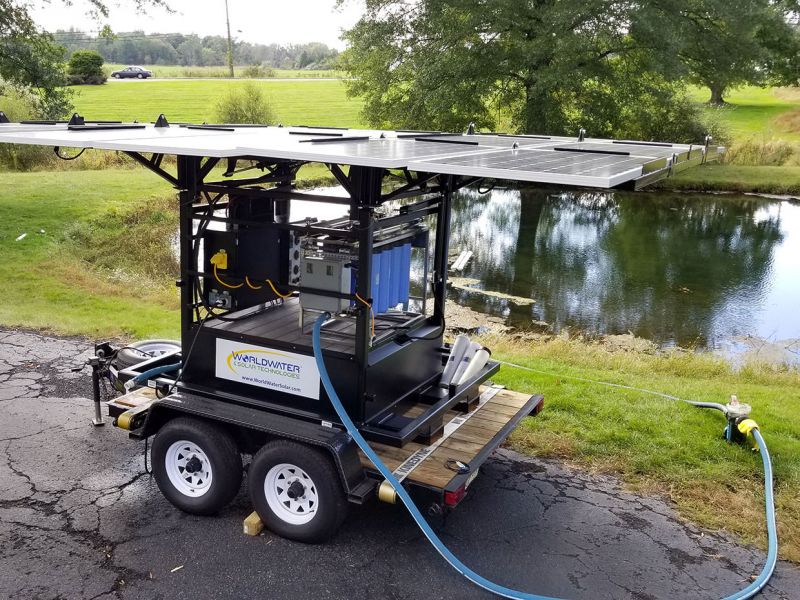How Solar-Powered, Mobile Water Purifiers Can Help Cities Cope With Bad Water
Published on by Water Network Research, Official research team of The Water Network in Technology
Quench Water & Solar is selling its solar-powered water purifiers to private owners as U.S. cities wrestle with clean drinking water issues.
By Maria Gallucci

A solar-powered MaxPure system turns pond water into clean drinking water. Photo: WorldWater and Solar Technologies
The mobile systems range from the size of golf carts to food trucks, depending on their desired output. Solar panels lay on top, generating electricity that charges the GEL-sealed, lead-acid batteries, which in turn run the motor that pumps water through filters. Clean water pours out a hose and, depending on the filtration process, contaminants flow out a discharge stream or remain in mechanical membranes. Internet-connected monitors remotely display the systems’ water quality, output, and equipment performance.
If water comes from ponds, lakes, or municipal taps, it passes through four filters to remove microbes, sediment, and other contaminants. An ultraviolet light then sterilizes the filtered water. Brackish or seawater undergo reverse osmosis, in which water is forced through a thick membrane that blocks sodium and chloride ions and lets freshwater pass. The process uses a substantial amount of energy, so those units require more solar panels and batteries and cost thousands of dollars more.
Lead-tainted water also requires reverse osmosis, because of the metal’s low molecular weight, says Ben Switzer, Quench’s director of business development. When we spoke in early October, he was manning a promotional booth at a conference in Flint, Michigan—a city still reeling from a public water crisis.
Read full article: IEEE Spectrum
Media
Taxonomy
- Treatment
- Treatment Methods
- Filtration
- Technology
- Wastewater Treatment
- Filtration
- Integrated Urban Water Management
- Urban Water
- Urban Resource Management
- Urban Water Supply
- water treatment